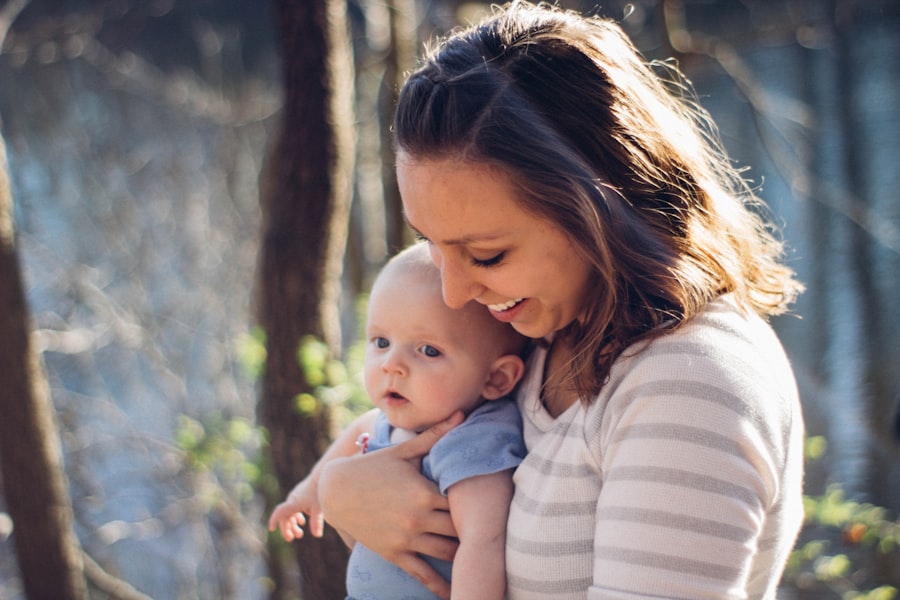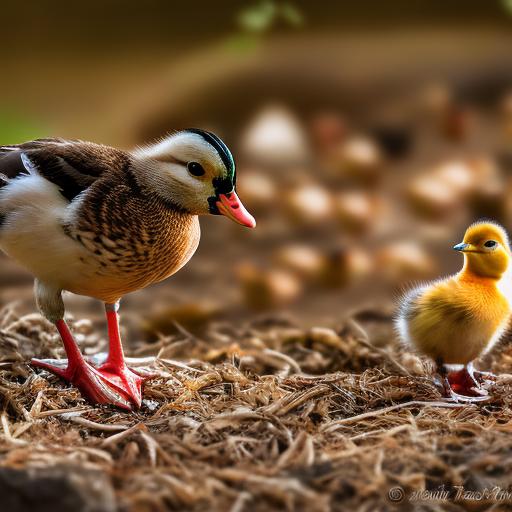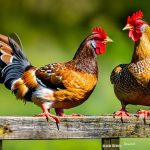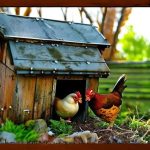Raising baby chickens and ducks together has become a popular trend among backyard farmers in recent years. This practice involves keeping both chickens and ducks in the same living environment, allowing them to interact and cohabitate. While traditionally chickens and ducks have been raised separately, many farmers are now realizing the benefits of raising them together. This article will explore the reasons behind this trend and provide guidance on how to successfully raise baby chickens and ducks together.
Key Takeaways
- Raising baby chickens and ducks together can be a rewarding experience for backyard farmers.
- Keeping mixed flocks can provide benefits such as pest control and diverse egg production.
- Understanding the differences between baby chickens and ducks is important for their care and well-being.
- Choosing the right breeds for mixed flocks can ensure compatibility and optimal living conditions.
- Setting up an ideal living environment with proper feeding, watering, and health considerations is crucial for raising baby chickens and ducks together.
The Benefits of Keeping Baby Chickens and Ducks Together
There are several mutual benefits for both chickens and ducks when they are raised together. One of the main advantages is that they can provide companionship for each other. Chickens and ducks are social animals, and having a mixed flock allows them to interact and form bonds. This can help reduce stress and loneliness, leading to happier and healthier birds.
Another benefit of raising baby chickens and ducks together is that it is a cost-effective and space-saving option for small-scale farming. Instead of having separate enclosures for chickens and ducks, farmers can create a single living environment that meets the needs of both species. This can save money on materials and construction, as well as reduce the amount of space required on the farm.
Understanding the Differences Between Baby Chickens and Ducks
Before deciding to raise baby chickens and ducks together, it is important to understand the physical and behavioral differences between the two species. Chickens are ground-dwelling birds with strong legs and feet, while ducks have webbed feet that are adapted for swimming. Chickens also have feathers that are more suited for walking on land, while ducks have waterproof feathers that keep them buoyant in water.
In terms of behavior, chickens are more territorial and tend to establish a pecking order within their flock. Ducks, on the other hand, are more social and tend to form close-knit groups. These differences in behavior can sometimes lead to conflicts within a mixed flock, so it is important to accommodate for these differences when raising baby chickens and ducks together.
Choosing the Right Breeds for Mixed Flocks
When raising baby chickens and ducks together, it is important to choose the right breeds that are compatible with each other. Some chicken breeds are more aggressive and may not get along well with ducks, while others are more docile and can cohabitate peacefully. Similarly, some duck breeds may be too large or too active for chickens to comfortably live with.
Some of the best chicken breeds for cohabitation with ducks include Orpingtons, Australorps, and Silkies. These breeds are known for their calm and friendly nature, making them more likely to get along with ducks. For ducks, breeds such as Pekins, Khaki Campbells, and Indian Runners are often recommended as they are generally more sociable and less aggressive.
When selecting breeds for a mixed flock, it is also important to consider factors such as size, temperament, and egg-laying capabilities. It is advisable to choose breeds that have similar characteristics and requirements to ensure a harmonious living environment.
Setting Up the Ideal Living Environment for Baby Chickens and Ducks
Creating the ideal living environment for baby chickens and ducks requires careful planning and consideration. The housing requirements for mixed flocks should take into account the needs of both species. The enclosure should provide ample space for chickens to walk and scratch on the ground, as well as a water source deep enough for ducks to swim in.
It is important to provide separate nesting areas for chickens and ducks, as they have different preferences when it comes to laying eggs. Chickens prefer nesting boxes that are elevated off the ground, while ducks prefer nesting areas that are closer to the ground or even on the ground itself. Providing separate nesting areas will help prevent conflicts between the two species and ensure that each bird has a comfortable place to lay their eggs.
In addition to nesting areas, the living environment should also include perches for chickens to roost on and water sources that are easily accessible for both chickens and ducks. It is important to regularly clean and maintain the living environment to prevent the spread of diseases and parasites.
Feeding and Watering Requirements for Mixed Flocks

Feeding and watering requirements for mixed flocks can be a bit more challenging compared to raising chickens or ducks separately. Chickens and ducks have different nutritional needs, so it is important to provide appropriate feed and water for both species.
Chickens require a balanced diet that includes a mix of grains, protein, vitamins, and minerals. They can be fed a commercial chicken feed or a homemade mix that includes ingredients such as corn, soybean meal, and calcium supplements. Ducks, on the other hand, require a higher protein content in their diet to support their growth and feather development. They can be fed a commercial duck feed or a mix of grains, fish meal, and greens.
When it comes to water, ducks require access to deeper water for swimming and cleaning their feathers. This can be provided through a shallow pool or a small pond within the living environment. Chickens, on the other hand, require access to clean drinking water at all times. It is important to provide separate water sources for chickens and ducks to ensure that their specific needs are met.
Health Considerations When Raising Baby Chickens and Ducks Together
Raising baby chickens and ducks together comes with its own set of health considerations. Both chickens and ducks are susceptible to certain diseases and parasites, so it is important to take preventative measures to keep them healthy.
Common health issues for chickens include respiratory infections, mites, lice, and coccidiosis. Ducks are prone to respiratory infections as well as diseases such as botulism and duck viral enteritis. It is important to regularly monitor the health of both chickens and ducks and seek veterinary care if any signs of illness or distress are observed.
Preventative measures such as regular cleaning and disinfection of the living environment, providing a balanced diet, and practicing good biosecurity can help reduce the risk of disease transmission. It is also important to quarantine new birds before introducing them to the flock to prevent the spread of any potential diseases.
Social Dynamics of Mixed Flocks: What to Expect
When raising baby chickens and ducks together, it is important to understand how chickens and ducks interact with each other. Chickens are more territorial and may establish a pecking order within the flock. This means that some chickens may be more dominant and assert their authority over others through pecking or chasing.
Ducks, on the other hand, are more social and tend to form close-knit groups. They are generally more accepting of new members and may not establish a strict pecking order like chickens do. However, conflicts can still arise between individual ducks, especially during mating season.
To manage social dynamics in a mixed flock, it is important to provide enough space for each bird to establish their own territory. This can be achieved by providing multiple feeding and watering stations, as well as separate nesting areas. It is also important to monitor the flock regularly for any signs of aggression or bullying and take appropriate action if necessary.
Common Challenges and Solutions for Keeping Baby Chickens and Ducks Together
Keeping baby chickens and ducks together can come with its own set of challenges. One common challenge is that ducks produce more waste compared to chickens, which can lead to a messier living environment. Regular cleaning and maintenance can help mitigate this issue.
Another challenge is that chickens may peck at the feathers of ducks, especially if they are different sizes or have different feather colors. This can cause stress and injury to the ducks. Providing enough space and distractions, such as toys or foraging areas, can help reduce the likelihood of feather pecking.
It is also important to consider the noise factor when raising baby chickens and ducks together. Ducks are generally louder than chickens, especially when they are excited or alarmed. This can be a concern for neighbors or those living in urban areas. Choosing quieter duck breeds or providing soundproofing measures can help mitigate this issue.
Is Keeping Baby Chickens and Ducks Together Right for You?
In conclusion, raising baby chickens and ducks together can be a rewarding experience for backyard farmers. It provides mutual benefits for both chickens and ducks, while also being a cost-effective and space-saving option for small-scale farming. However, it is important to understand the differences between baby chickens and ducks and accommodate for these differences in a mixed flock.
Choosing the right breeds, setting up the ideal living environment, providing appropriate feed and water, and taking preventative measures for health are all important considerations when raising baby chickens and ducks together. Managing social dynamics and overcoming common challenges are also key to maintaining a harmonious mixed flock.
Ultimately, whether keeping baby chickens and ducks together is right for you depends on your specific circumstances and preferences. It is important to weigh the benefits and challenges, as well as consider factors such as available space, time commitment, and noise restrictions. With proper planning and care, raising baby chickens and ducks together can be a fulfilling and enjoyable experience.
If you’re considering keeping baby chickens and ducks together, it’s important to understand the dynamics between these two species. While they can coexist harmoniously, there are certain factors to consider. In a related article on Poultry Wizard, you can learn more about the compatibility of different poultry species. The article explores the question of whether guinea fowl can live with chickens, providing valuable insights into their interactions and potential challenges. Understanding the dynamics between different poultry species is crucial for creating a safe and harmonious environment for your feathered friends. To learn more about this topic, check out the article here.
FAQs
Can you keep baby chickens and ducks together?
Yes, baby chickens and ducks can be kept together as long as they are of similar size and age.
What are the benefits of keeping baby chickens and ducks together?
Keeping baby chickens and ducks together can provide them with companionship and reduce their stress levels. They can also learn from each other’s behaviors and habits.
What are the challenges of keeping baby chickens and ducks together?
One of the challenges of keeping baby chickens and ducks together is that they have different dietary needs. Ducks require more niacin than chickens, which can lead to health problems if not provided. Additionally, ducks produce more waste than chickens, which can create sanitation issues.
What should I feed baby chickens and ducks if I keep them together?
It is recommended to feed them a diet that is appropriate for ducks, as chickens can tolerate it. This includes a starter feed that contains at least 18% protein and additional niacin for the ducks.
What should I consider before keeping baby chickens and ducks together?
Before keeping baby chickens and ducks together, it is important to consider their space requirements, dietary needs, and potential health issues. It is also important to ensure that they have access to clean water and a safe environment.
Meet Walter, the feathered-friend fanatic of Florida! Nestled in the sunshine state, Walter struts through life with his feathered companions, clucking his way to happiness. With a coop that’s fancier than a five-star hotel, he’s the Don Juan of the chicken world. When he’s not teaching his hens to do the cha-cha, you’ll find him in a heated debate with his prized rooster, Sir Clucks-a-Lot. Walter’s poultry passion is no yolk; he’s the sunny-side-up guy you never knew you needed in your flock of friends!







